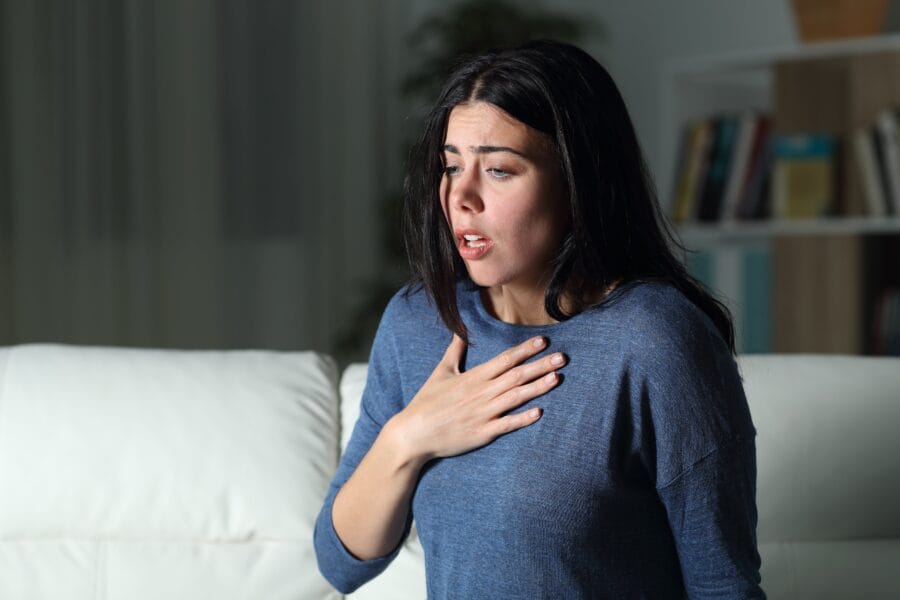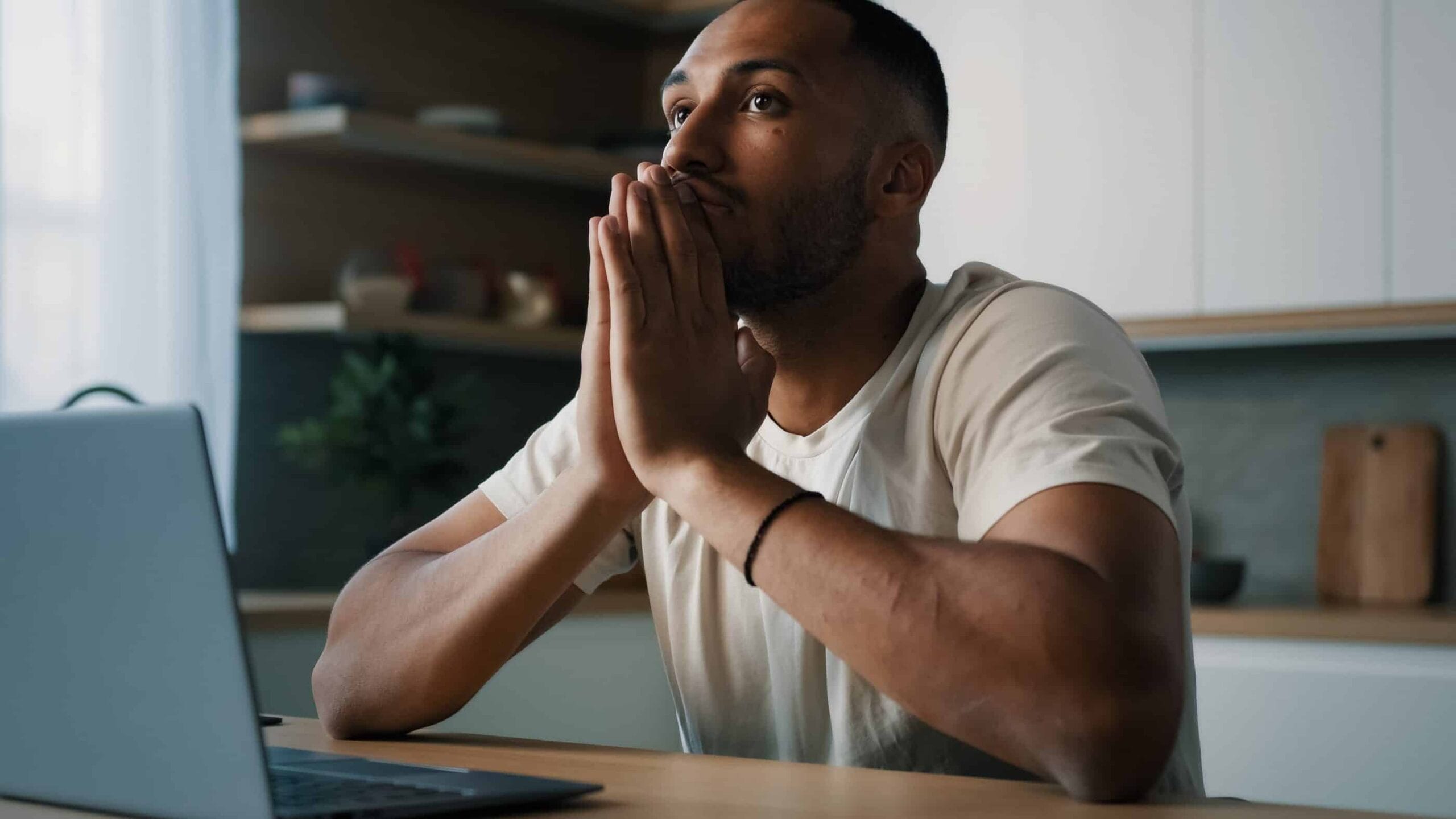In casual conversations, we often use the word anxious as a synonym for nervous. But in a mental health context, the symptoms of anxiety disorders can be much more disruptive than a temporary sense of mild apprehension. What does anxiety feel like? As we discuss in today’s post, that can vary depending on which type of disorder a person has.
What Does it Feel Like to Have Anxiety?
The fifth edition of the Diagnostic and Statistical Manual of Mental Disorders (DSM-5) includes entries for several anxiety disorders, including:
- Generalized anxiety disorder (GAD)
- Panic disorder
- Separation anxiety disorder
- Specific phobia
- Social phobia (social anxiety disorder)
- Selective mutism
- Agoraphobia
Given the many conditions that fall within the DSM-5’s category of anxiety disorders, the answer to the question, “What does anxiety feel like?” isn’t as simple as you might think.
In general, all of these disorders involve excessive fear or worry. Many can also trigger physical symptoms. For some disorders (such as specific phobia or agoraphobia), the onset of symptoms is directly related to a specific object or circumstance. For others (such as GAD and panic disorder), symptoms may occur at any time, with no apparent external cause.
In the next few sections, we’ll focus on some of the potential physical symptoms of anxiety disorders.
How to Tell if Shortness of Breath is Caused by Anxiety?
Breathing difficulties can be symptomatic of anxiety disorders. This may include feeling like you can’t catch your breath or that you are being choked or smothered.
Shortness of breath can also be caused by several other factors, including physical exertion, asthma, and other medical conditions. How, then, can you tell if shortness of breath is related to anxiety?
The only way to be sure what is causing you to experience shortness of breath is to be assessed by a qualified healthcare provider. In the interim, here are a few signs that shortness of breath may be associated with anxiety:
- You experience shortness of breath only in certain situations, such as when you are in an enclosed space, within a crowd of people, or exposed to a stressor such as a spider or blood.
- The breathing problem resolves once you are removed from the object or circumstance that triggered its onset.
- If your shortness of breath seems to appear out of nowhere, but it only lasts for a brief period of time, it could be symptom of GAD or panic disorder.
Again, the best way to determine what is causing your shortness of breath is to make an appointment for an assessment with a medical doctor or a mental health professional.

Can Anxiety Cause Chest Pain or Tightness?
In addition to shortness of breath, chest pain is a common element of a panic attack. Other symptoms, such as dizziness, racing heart rate, and excessive perspiration, can make a panic episode feel like a heart attack.
If you were to ask people who have panic disorder, “What does anxiety feel like?” a common response may be, “it feels like you’re going to die.”
Thankfully, panic attacks don’t usually last for very long. However, while they are occurring, a person may be subjected to considerable physical and emotional distress.
Can Anxiety Cause Someone to Have High Blood Pressure?
Anxiety disorders have been linked with temporary increases in blood pressure. However, experts have not identified anxiety as a direct cause of long-term high blood pressure (hypertension).
Indirectly, though, anxiety may be a risk factor for hypertension if you respond to symptoms in an unhealthy manner.
For example, many people smoke cigarettes, drink alcohol, or overeat as a means of coping with anxiety. These behaviors can lead to cardiovascular problems, overweight and obesity, and other medical concerns that have been linked with high blood pressure.
Can Anxiety Cause Nausea?
Yes, nausea is another physical symptom that is common among people who have certain types of anxiety disorders.
Someone who has generalized anxiety disorder may have stomachaches, nausea, diarrhea, and other forms of gastrointestinal distress. These symptoms may be accompanied by muscle tension, persistent fatigue, and other physical effects.
People who have panic disorder may also experience nausea along with dizziness, lightheadedness, tingling hands and feet, and the other physical symptoms that we have already discussed.
Individuals with agoraphobia, social phobia, and specific phobia may become nauseous when confronted with (or even when thinking about) the circumstances that can trigger the other symptoms that are associated with these disorders.
What Are the Options to Help Overcome Anxiety?
Anxiety is often treated with a combination of medication and therapy. Certain prescription medications can ease some symptoms of anxiety disorders, while therapy can help people replace maladaptive thoughts and behaviors with healthier ways of thinking and acting.
Depending on the severity of a person’s struggles with anxiety, they may benefit from receiving care at one or more of the following levels:
- Inpatient treatment
- Outpatient mental health treatment
- Partial hospitalization program (PHP)
- Intensive outpatient program (IOP)
The therapeutic element of treatment for anxiety may include:
- Individual and group therapy sessions
- Cognitive behavioral therapy (CBT)
- Dialectical behavior therapy (DBT)
- Holistic therapies such as mindfulness and meditation
- Nutrition education
- Other services as needed
Contact Montare Behavioral Health About Treating Anxiety Today
Montare Behavioral Health offers a wide range of customizable treatment options to help people who have been struggling with generalized anxiety disorder, panic disorder, and other anxiety disorders. Facilities in the Montare Behavioral Health network provide personalized inpatient and outpatient services at convenient locations throughout Southern California. At every location and in every program, you can expect to receive superior care from a team of skilled and compassionate professionals.
With our help, you can regain control of your thoughts and behaviors so that you can live a healthier and much more satisfying life. To learn more or to schedule a free assessment, please visit our Contact Us page or call us today.











